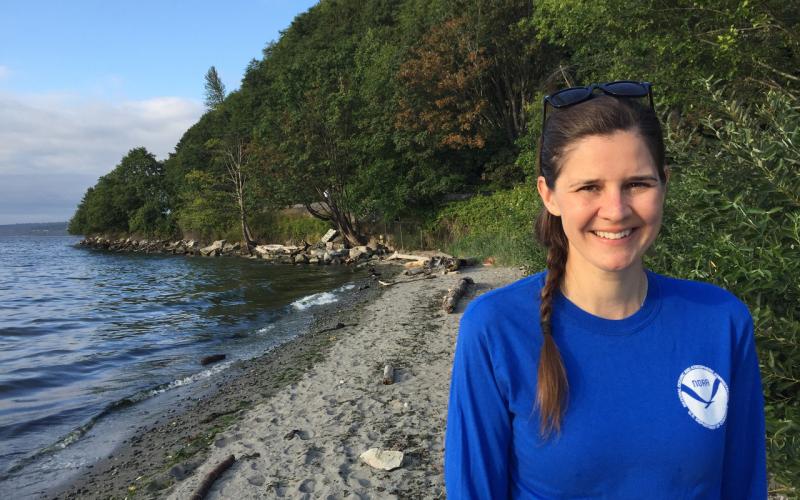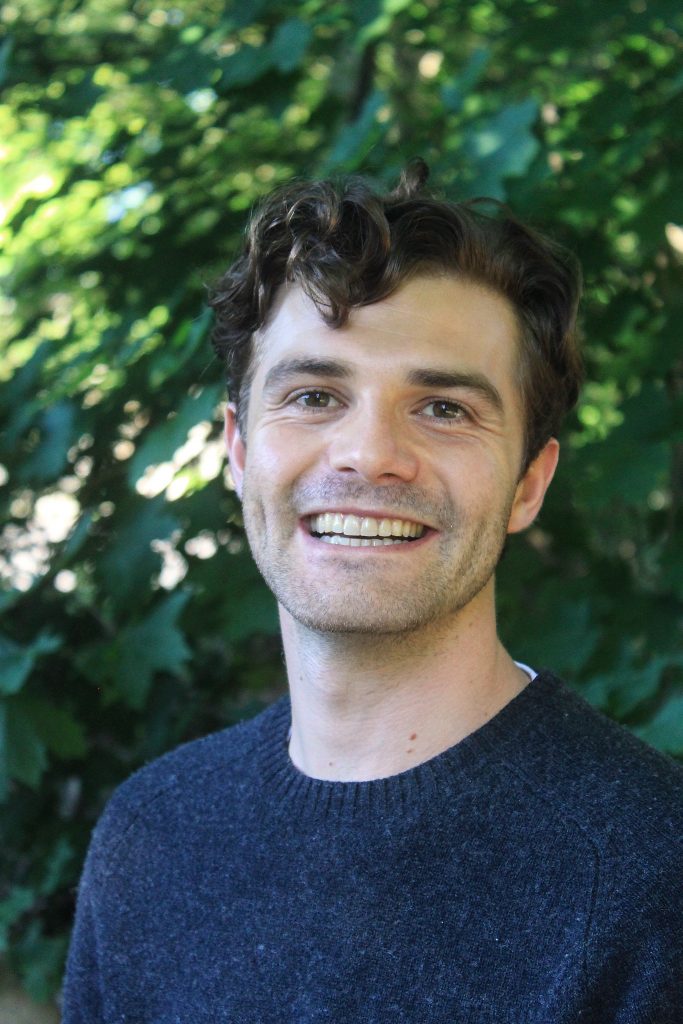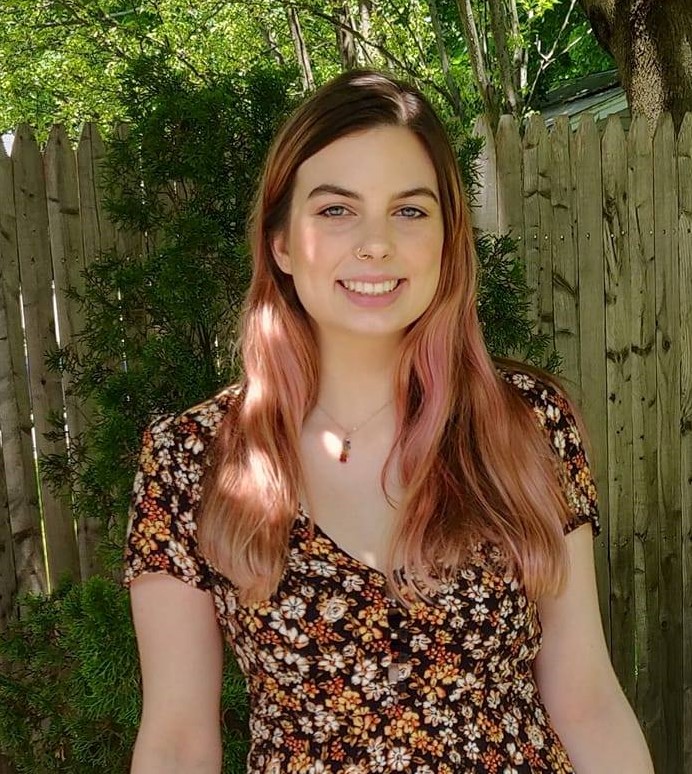The John A. Knauss Marine Policy Fellowship Program, sponsored by Sea Grant and the National Oceanic and Atmospheric Administration (NOAA), is a one-year paid fellowship that places graduate students in either an executive or legislative position within the federal government. Fellows are given the opportunity to have direct experience working on the latest issues in ocean, coastal and Great Lakes management and research. Several alumni of our department have been selected to participate in this fellowship in the past. This article discusses the experiences of Dr. Terill Hollweg (’10, PhD), Alec Shub (’20, MS), and Halle Berger (’20, MS, PhD in progress).
The traditional path of graduate students in science has been to pursue careers in academia. As more environmental issues reach the spotlight and are discussed in a national policy context, greater numbers of graduate students are expressing an interest in working for the government in environmental policy or advising positions. Fellowships like the Knauss Fellowship offer recent graduates an opportunity to explore government policy jobs before settling on a career path. All three interviewees cited an interest in non-academic jobs as a driver for their participation in the fellowship. Dr. Hollweg reflected, “In grad school I was focused on looking at contaminants in the environment, and I enjoyed that, but I was open to anything where I felt that I was helping to improve the environment, and the fellowship let me see if NOAA was a place where I could actually feel like I did that.”

While a fellow, Dr. Hollweg served as a program planning and evaluation specialist in NOAA’s Restoration Center. She noted that one of the biggest challenges of stepping into this role was the contrast between her time in grad school, where her day to day life comprised mostly individual projects and lab work to the fellowship, where she participated in multiple meetings per day, worked on several different projects, and helped to put together deliverables on tight schedules. Despite the challenges of her new role, she enjoyed the fellowship and made many lifelong connections. “One of my favorite things was having the cohort of fellows who all started at the same time. Going to DC and having this group that cares about the same things you do helps you get through being in a new city for the first year. Some of my best friends now are from my cohort of Knauss fellows.”
When her time as a fellow came to an end, Dr. Hollweg transitioned to a full-time contractor positioned in the same NOAA Restoration Center, performing high-level program work. In order to return to some of her more technical roots, she soon took a job with an environmental consulting firm that worked closely with the Restoration Center, where she spent the next 6 years. When a full-time position in the Restoration Center opened up, she transitioned back into working for the Federal government. Reflecting on her experiences with the fellowship, Dr. Hollweg commented “The Knauss Fellowship started my career path and set my career path. If I hadn’t done the fellowship I don’t know what I’d be doing now but I doubt it would be this position. I am so happy they have the fellowship, it’s such a wonderful opportunity to get young people into the government and learn how the government works.”
Since the start of the COVID pandemic, many jobs have transitioned to teleworking, and the Knauss Fellowship was no exception. Shub and Berger were both Fellows in the 2021-2022 cycle, and both cited performing the fellowship virtually as one of their biggest challenges during the experience. The inability to form more personal bonds with other fellows or coworkers was an added complication when stepping into management and organizational roles. Shub served as the International Climate Fellow in NOAA’s Climate Program Office, while Berger worked as a Coastal Stressors Program Coordinator in both the Ocean Acidification Program and the National Center for Coastal and Ocean Science Competitive Research Program within NOAA. Despite the challenges of teleworking, the flexibility of the fellowship and the time built in for personal professional development were invaluable resources. Shub and Berger both discussed how appreciative they were for the many different experiences they were able to have, even outside of their main responsibilities. Post-fellowship, Shub is continuing on as a Program Specialist in the same office where he served his fellowship. The opportunities he was exposed to during his fellowship have given him new perspectives on what kind of career he would like to pursue. Berger has returned to UConn Avery Point to complete her PhD with new perspectives on career opportunities.


All three had great advice for students who are interested in pursuing the Knauss fellowship. During the finalist stage of the interview process, candidates spend a week in DC (or virtually during COVID) participating in a series of ~20 interviews to determine their placement. Berger advised that applicants plan their interviews strategically, participate in “ask a current fellow” events, and remain open to every opportunity. “Just go into it with an open mind, interview for things you wouldn’t think on paper are good for you, because you might be surprised at what interviews end up being super interesting.” Shub suggested that applicants consider what kind of position they would like to be in, whether it’s more research based or management focused, rather than focusing specifically on what kind of subject material they find interesting. Dr. Hollweg recommended that applicants think about which supervisor will be a good fit, since you will work closely with your supervisor during the experience and they will help advocate for you. All three interviewees strongly recommended the fellowship to students who are interested in policy or government work post-graduation. Learn more about the Knauss Fellowship here.